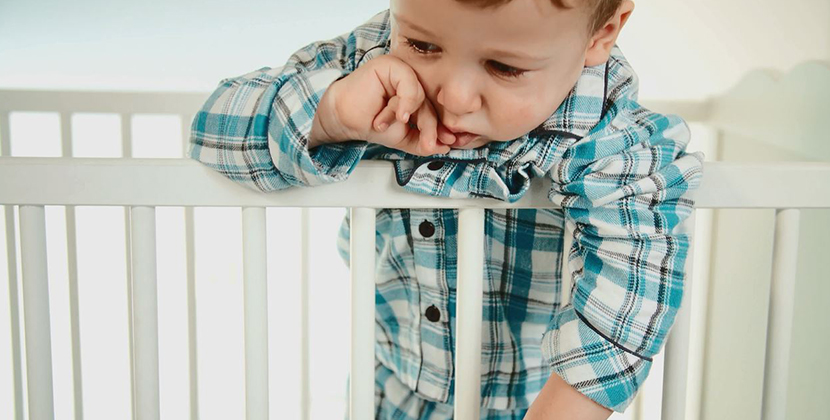As if tired parents didn’t have enough to stress about, daylight saving time comes along and throws a wrench in any sleep routine you’ve tried to put in place. Just one mere hour—and the related light change—can undo, or demolish months of progress. We know it’s not just our families.
Dr. Kelly McGregory understands. Not only does she have two to three appointments per day where parents lament their child’s sleep patterns, but she’s been there herself. So we turned to her to find out the best ways to minimize sleep interruptions when we spring forward and fall back each year (Mark your calendars now, it happens March 11.)
Q: First off, are we SUPPOSED to do something about daylight saving time and our kids?
A: You have to pick your battles. Some families grit their teeth and bare it [through the transition].
But some benefit by going to sleep a little bit earlier. Of course, especially with toddlers, that is easier said than done.
Q: So, do you have some ninja sleep tricks?
A: Well, lighting has a huge impact on sleep. Your body gets the signal to make melatonin when it’s dark. When it’s light, your body doesn’t know it’s time to sleep. By creating a cozy, dim atmosphere, you set the scene for a good night’s sleep. And, avoid screen time before bed. These tips are both very helpful for a successful bedtime.
Q: We’ve heard over and over to plan ahead and inch bedtime back by 15 minutes a night for a week or so to get kids re-adjusted. But that didn’t work for my kids last year. What else do you have for us?
A: Well, they’re also getting up earlier in the morning. While that sometimes makes kids more tired for bed at night, some kids need the extra help in the morning. For instance, when they are waking up at 6 a.m., it feels like 5 a.m. In that case, you can try waking them UP a little earlier instead.
At least in my experience with my own children, it is harder to make them go to sleep (earlier) than wake them up (earlier). So, try waking them up 15 minutes earlier each day for one to two weeks prior to daylight saving time. Then they get used to getting up a little bit earlier, and the actual consequence is that maybe they are more tired and more willing to go to bed at night. If you were trying to decide between the two strategies, I would do morning waking up a little early.
If you’ve been thinking about training your tot to sleep better, daylight saving time isn’t necessarily the best time to start. They may not feel entirely sleepy going to bed an hour earlier, or not in the mood to get up in the morning.
But it might be a good time to revisit some basic tips about good sleep hygiene for babies and kids—and yourself.
Q: Are there other tools to help?
A: Just like the darkness relaxes people to sleep, sunlight can help people feel awake. Get some exposure to the sun if it’s out, and open shades in the morning to let light in. For children who can understand the concept of time, you can introduce a special clock that helps them understand whether it’s time to get up when they wake.
Q: OK, but my kid is driving me nuts. I’m ready to just let them go to bed late or wake up late.
A: Absolutely don’t drop that hour. It should take about a week to adjust to the new routine. If it is taking longer than that, I would start to wonder about an underlying sleep issue going on—not necessarily a sleep disorder, but maybe that they were not getting enough sleep to begin with.
Q: Well, how much sleep do we all actually need?
A: The CDC has recently published really good sleep guidelines for each age. As we know, sleep needs fluctuate as babies grow.
Rules of thumb:
- Newborns need 14-17 hours of sleep per 24-hour period.
- Infants need 12-15.
- Toddlers need 11-14.
- Preschoolers need 10-13.
- School-agers need somewhere between 8-14 hours.
- Teens need 8 to 10 hours a night, but up to a third report sleeping less than 8 hours, and the incidence of not sleeping enough grows as the teens do.
Q: What about the parents? We’re definitely not sleeping enough.
A: It is a life and lifestyle struggle for many. As a society, we have to make sleep a priority again. According to the research, insufficient sleep can put adults at an increased risk of depression, diabetes, hypertension, obesity, and more. It’s truly a global health issue.
For more information on sleep techniques, sleep issues and disorders, please contact your child’s primary care provider today.


